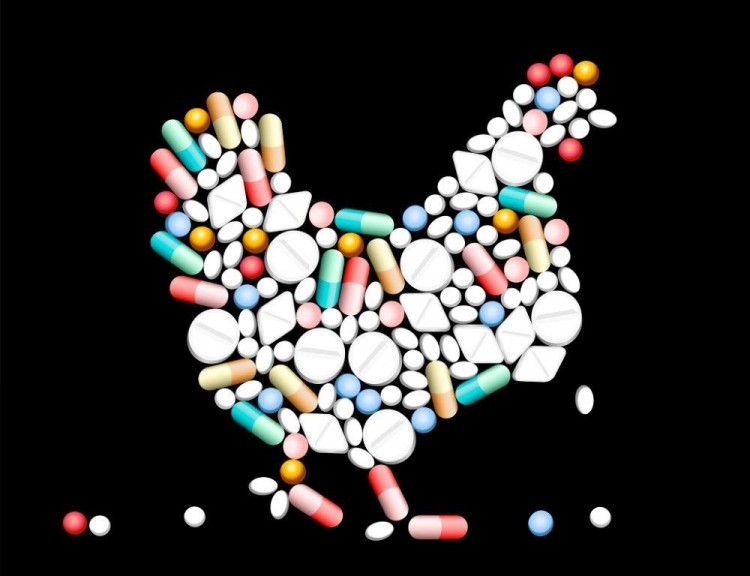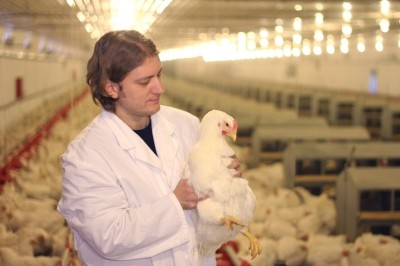Tyson Foods turns to probiotics and essential oils in move away from dual use antibiotics

This week saw the chicken processor pledge to phase out the use of such antibiotics in its US broiler chicks by the end of September 2017.
Tyson's, which processes over 38 million broiler chickens per week, said it has already reduced the use of dual use antibiotics in its broiler chickens by more than 80% since 2011, has stopped using all antibiotics in its 35 broiler hatcheries, and in addition, it requires a veterinary prescription for antibiotics used on broiler farms.
When asked what replacement strategy it has adopted in its bid to eliminate the use of antibiotics such as ceftiofur in its birds, a spokesperson for Tyson told FeedNavigator: “We’re using prebiotics and probiotics as well as essential oils and botanicals, and we continue to test new alternatives to antibiotics.”
Broadening the pledge
The processor also said this week that it would develop an action plan to discuss ways to reduce the use of human use antibiotics on cattle, hog and turkey farms, as well in its chicken produced abroad.
“We plan to work with the food industry, government, veterinary, public health and academic communities, and provide funding to accelerate research into disease prevention and antibiotic alternatives on the farm,” added the spokesperson.
Antibiotic stewardship is looking like the new normal in the chicken industry, said a US based NGO in reaction to Tyson’s move.
The National Resources Defense Council (NRDC) said the processor's announcement this week represents ‘the tipping point’ for 'getting the chicken industry off antibiotics'.
Tyson’s pledge follows similar commitments made by other US chicken companies such as Perdue, Chick-fil-A and Pilgrim's in recent months.
“Combined, the production volumes of Perdue (which announced it had already eliminated medically-important antibiotics from 95% of its birds last fall), Pilgrims (which announced this month that it will eliminate all antibiotics from 25% of its flock) and Fieldale Farms (which we gather is nearly all antibiotic-free) add up to 38% of all the chickens raised by the top 20 companies in the [US] industry.
With the top three chicken companies taking decisive action to reduce antibiotics use, the rest of the broiler industry needs to step up to the plate,” said the NRDC.
Tyson Foods and Keystone Foods supply the bulk of chicken to McDonalds USA – in March that fast food giant declared it will only be sourcing chicken raised without human medicine important antibiotics from 2017 onwards in the US given the increasing societal concern that their overuse in poultry may diminish their effectiveness in fighting disease in humans.
Boosting immunity
US National Chicken Council spokesperson, Tom Super, told this publication last month that chicken processors are increasingly relying on ionophores - a type of animal use only antibiotic - and also encouraging greater use of vaccinations, starting at the breeder level, in their bid to make their poultry production free of human medicine important antibiotics.
“But they are also turning to inputs such as probiotics,” he said.
Guy Loneragan, professor of food safety and public health at Texas Tech University, said processors are also looking at sanitation practices, the environment and how to prepare the bird or the animal for a life free from antibiotics through boosting their immune system.
He told us the likely net effect of a company like McDonald’s taking on antimicrobial stewardship will be a “significant change in husbandry methods and antibiotic usage across all meat production industries."















